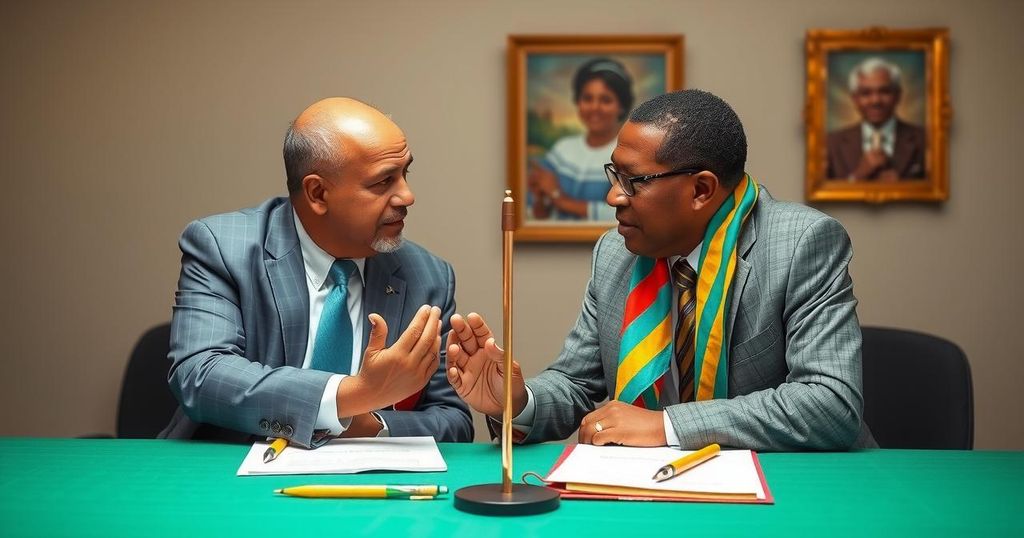On December 11, 2024, Turkey facilitated a reconciliation agreement between Ethiopia and Somalia, addressing tensions from a contentious MoU signed by Ethiopia with Somaliland that threatened regional stability. The agreement, backed by international entities, reaffirms sovereignty and mutual cooperation, aiming to bolster Ethiopia’s economic recovery while aiding Somalia’s security landscape amid internal challenges.
On December 11, 2024, Turkey marked a significant diplomatic achievement by mediating a reconciliation agreement between Ethiopia and Somalia, culminating high-level discussions in Ankara. This pivotal agreement emphasizes Turkey’s increasing influence in the Horn of Africa, which provides a framework for both nations to renew cooperation following a protracted period of heightened tensions stemming from Ethiopia’s controversial Memorandum of Understanding with Somaliland. Supported internationally by bodies such as the United Nations, the United States, and the African Union, the declaration represents a critical step towards mending diplomatic ties.
The origins of the discord can be traced to January 2024 when Ethiopia signed a contentious MoU with Somaliland. This agreement allowed Ethiopia to establish a naval base along Somaliland’s coastline, raising fears of Ethiopia recognizing Somaliland’s independence—an idea strongly opposed by Somalia due to territorial concerns. Consequently, bilateral relations deteriorated sharply, resulting in a regional polarization where Somalia secured military support from Egypt, Eritrea, and Djibouti, while Ethiopia garnered assistance from Uganda and Kenya, contributing to heightened geopolitical tensions. Somalia’s demands for Ethiopian troop withdrawals further exacerbated the crisis, setting the stage for external mediation efforts.
Turkey’s emergence as a mediator began with the ‘Ankara Process’ initiated on July 1, 2024, aiming to address escalating tensions. This process included successive high-level discussions, culminating in the December 11 declaration. Within the Ankara Declaration, Ethiopia and Somalia reaffirmed their commitment to sovereignty and territorial integrity, pledging mutual cooperation and economic collaboration, while Somalia recognized Ethiopia’s contributions to African Union missions.
The agreement represents a significant advancement in Ethiopia’s ambitions for access to the Red Sea, complementing ongoing efforts to stabilize its economy post-conflict. Prime Minister Abiy Ahmed seeks to refocus on economic recovery amidst ongoing unrest and humanitarian challenges stemming from the Tigray war. For Somalia, the accord offers a chance to stabilize its security situation while promoting a commitment to peaceful conflict resolution. However, it also faces domestic opposition and anti-Ethiopian sentiments fueled by groups like Al Shabaab, necessitating adept management of national discourse by the Somali leadership.
The situation is complexified by Somaliland’s push for international recognition, particularly as its new President Abdirahman seeks closer ties with Ethiopia, potentially attracting U.S. recognition under a future administration. Somaliland’s initiatives to host U.S. military bases also complicate the reconciliation process, as it seeks to align with Western strategies against growing Chinese influence in the region.
Furthermore, President Macron’s interest in bolstering Ethiopia’s maritime capabilities signifies France’s role in this narrative. Despite prior setbacks, Macron’s recent visit indicates a renewed commitment to support Ethiopia’s international maritime ambitions under the framework of peaceful negotiations.
Turkey’s role in mediating the peace agreement highlights its increasing diplomatic prominence in Africa. However, the enduring success of the Ankara Declaration will depend upon continued commitment from all parties involved to ensure effective implementation and management of the emerging diplomatic relationship between Ethiopia and Somalia, addressing any allegations of violations in the process.
Ultimately, the success of this diplomatic endeavor will rely heavily on Somalia’s government successfully promoting the agreement’s benefits while navigating potential resistance from nationalist factions. Turkey’s ongoing mediation efforts and broader international support will also play a pivotal role in stabilizing regional dynamics as both countries work to overcome historical tensions and foster cooperation towards shared economic prosperity.
The Ethiopia-Somalia discord can be traced back to early 2024 when Ethiopia signed a contentious MoU with Somaliland, exacerbating regional tensions. This agreement raised concerns over Somalia’s territorial integrity as it reflected Ethiopia’s expansionist objectives, leading to a deterioration of bilateral relations and aligning various regional powers against one another. Turkey’s emergence as a mediator in this context is significant as it reflects an increasing diplomatic footprint in Africa, aiming to de-escalate tensions and promote stability in a strategically vital region.
The Turkey-mediated reconciliation agreement between Ethiopia and Somalia marks a critical turning point in the Horn of Africa’s diplomatic landscape. By addressing longstanding tensions and establishing pathways for cooperation, both nations stand to benefit mutually. However, the success of this accord is contingent upon careful negotiation and engagement with domestic challenges, including nationalist resistance and external geopolitical interests. Sustained commitment from all parties, coupled with international support, will be essential in realizing the goals outlined in the Ankara Declaration.
Original Source: www.idsa.in






